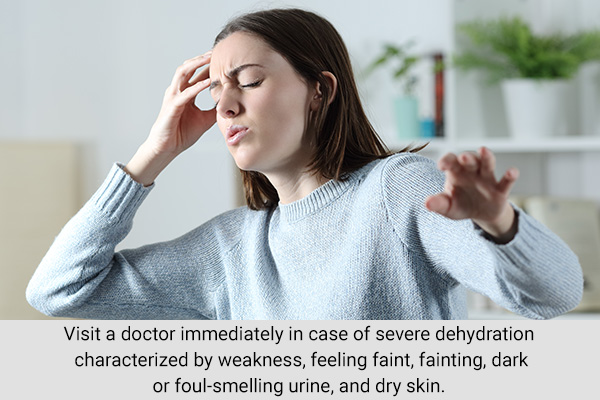In this article:
Gastroenteritis, also known as stomach flu, is a condition in which the stomach and the small intestine become inflamed. It is primarily caused by viral or bacterial infections. The infections are typically caused by contaminated water and spoiled food. (1)

Acute gastroenteritis is a common cause of clinic visits and hospitalizations in the USA. Approximately 179 million cases of acute gastroenteritis occur each year. This results in millions of clinic visits, almost 500,000 hospitalizations, and more than 5,000 deaths per year. (2)
Causes of Gastroenteritis
Infectious agents such as Rotavirus, Norovirus, Escherichia coli (E. Coli), and Salmonella can cause gastroenteritis. (2)
Aside from infectious agents, other factors also play a role in the spread of stomach flu:
- Coming in contact with a person who has the virus
- Consuming contaminated food or water
- Not washing the hands after going to the bathroom or changing a diaper
Signs and Symptoms of Gastroenteritis

Gastroenteritis can be a highly contagious disease. Symptoms typically appear within 12 to 48 hours after exposure to the infectious agent and last for 2 to 10 days, depending on the type of infection.
Common symptoms of gastroenteritis include:
- Upset stomach
- Nausea
- Mild to moderate diarrhea
- Stomach cramps
- Vomiting
- Fever
- Headache
- Chills
- Body aches
- Dehydration
Risk Factors Associated With Gastroenteritis
Anyone can suffer from gastroenteritis, but children and the elderly are more prone to complications due to their weakened immune systems.
It was found in a study that rotavirus was the most common gastroenteritis pathogen identified, followed by norovirus, adenovirus, and Salmonella. (3)
When to See a Doctor

Consult a doctor immediately if you experience the following symptoms of severe gastroenteritis: (4)
- Blood in vomit or stools
- Persistent vomiting for more than 48 hours
- High-grade fever, above 101° Fahrenheit (40° Celsius)
- Increasing intensity of abdominal pain
- Severe dehydration characterized by weakness, feeling faint, fainting, dark or foul-smelling urine, and dry skin
Final Word
Most cases of gastroenteritis tend to resolve on their own without any medication, but the condition can be quite draining and the patient does need proper care while it lasts.
It causes major fluid loss in the form of vomiting and diarrhea which disrupts your electrolyte balance and leaves you feeling weak. Thus, it is very important to rehydrate and rest your body so that it can make a full and fast recovery.

- Was this article helpful?
- YES, THANKS!NOT REALLY


